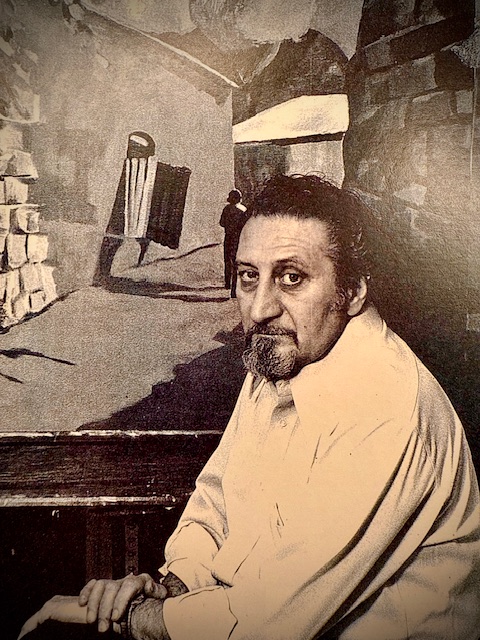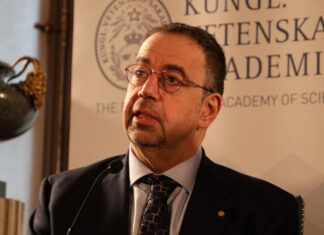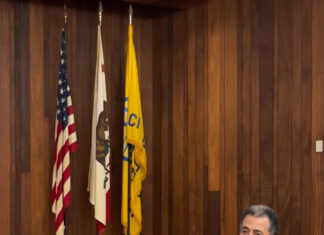By Aram Arkun
Mirror-Spectator Staff
WASHINGTON — Charles Mahtesian is Politico’s national politics editor and has his own blog on the Politico website. An expert on American politics frequently appearing on major radio and television shows as an analyst, Mahtesian also has a deep interest in and commitment to his Armenian heritage. He will be receiving the Armenian Mirror-Spectator’s 2012 Award of Excellence on May 24.
Mahtesian grew up in Haverhill, a suburb of Philadelphia, and confesses that he was not that interested in politics as a youth. He said, “I was a political science major, but was mostly a dumb jock playing baseball and soccer until halfway through college.” He completed an internship on Capitol Hill while studying at Catholic University in Washington, DC, and soon enough found his true calling. He explained, “I think it is the clash of forces, the high stakes that interest me in politics. Discovering all of the forces that drive American politics fascinated me, and in particular trying to understand the cultural, social, economic and political forces that drive the processes and make politicians do the things they do.”
He knew he did not want to be a politician himself, but preferred to observe and analyze. He said, “The ideological component never really appealed to me. I’ve always been something of a contrarian thinker.” Furthermore, “One of the things that I have learned is that on any given issue, both sides are probably right about some aspects of it. American politics is so much grayer than people think, and I have appreciated the grayness of it.” Mahtesian prefers not to characterize himself as left or right, but as an independent, and finds that one reason he has been able to succeed in his field is his detached viewpoint.
After college, he began to work at the Congressional Quarterly, clipping stories from 125 daily American newspapers, then covering elections and redistricting, as well as con- tributing to the books, Politics in America and Congressional Districts in the 1990s. He then became a national correspondent for Governing magazine, traveling all over the US and writing about state legislatures, governors and urban politics for eight years.





